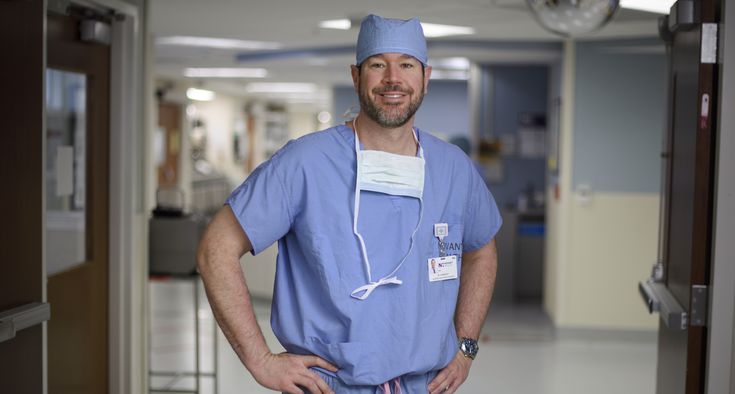If you’re over 30, neurologist Dr. Norman Bettle of Novant Health Neurology - Beaufort Plaza, has some unsettling news: You might be starting to cognitively decline.
By your 30s and 40s, you might be worse at learning new things than you used to be, studies show. By your 50s and 60s, memory, retrieval, multitasking and paying attention can become harder.
The good news: You’ve also gained judgment and experience, so your overall performance is probably still better than during your younger years. And taking some proactive steps can keep your brain as sharp.
Memory care for you and your family.
What is cognitive decline?

Even though “cognitive decline,” (what many call “slipping”) sounds scary, it’s a normal part of aging that won’t end with a diagnosis for most of us. The term refers to the loss of thinking abilities. Usually, this happens very slowly — over decades.
With typical cognitive decline, you’ll be able to function just fine by making adjustments like using a calendar, creating a to-do list and cellphone reminders and timers, or writing notes as you learn a new process at work. You can make a sign reminding you to grab your phone and wallet when you leave the house or use a pill container to visually check if you’ve taken your daily medications.
Creating routines that “automate” tasks — like always putting your keys in the same place and charging your cellphone in the same place — can also help free up your brain’s resources to focus and remember more complex things.
With adjustments like these, Bettle said, those of us experiencing normal cognitive decline from aging should be able to live independently into our 80s and 90s unless other physical health needs get in the way. But if these types of strategies aren’t helping, your decline has happened quickly instead of gradually, or family members are concerned that you’re more forgetful than usual, see the box at the end of the article.
How to slow cognitive decline
Although you can’t prevent cognitive decline, you can slow it. We can make choices now to help our brain keep remembering, learning, and thinking clearly for as long as possible.
It’s a concept called “brain health.” And thankfully, it’s not complicated: Choices that support brain health are good for our overall health, so your to-do list won’t get much longer.
Here are tips Bettle recommends for brain health — and those you can skip:
- Make lifestyle choices to delay or prevent vascular diseases that harm blood flow and circulation. This is a fancy way of saying manage your cholesterol and blood pressure, prevent Type 2 diabetes if possible and take care of yourself if you develop it. Get to and stay at a healthy weight. Don’t smoke.
How does this help? Damage from vascular disease can lead to a type of dementia called vascular dementia, and vascular disease is also a risk factor for developing Alzheimer’s disease. If you lower your risk of vascular diseases, you will lower your risk of developing these types of dementia.
- Diet matters: A Mediterranean diet has been shown to delay cognitive decline, but if that’s confusing, keep it simple: “I don’t want to say, ‘Eat only green vegetables and nothing else,’” Bettle said, since a diet that restrictive is unnecessary. “Instead, roughly, avoid large amounts of animal fats, stick more to olive oils, and have a balanced diet with fruits, vegetables, grains and lean proteins.”
You may have heard that certain foods are “superfoods” when it comes to preventing cognitive decline, and emerging research shows that certain foods — like blueberries — might improve brain health. But science doesn’t yet show that eating a huge amount of any specific food prevents cognitive decline, so if you like these foods, eat them; if you don’t like them, no need to stuff yourself with them, Bettle said.
- Drink alcohol in moderation: Neurologists generally agree that anything beyond two alcoholic drinks a day may be harmful, Bettle said. And that’s two standard drinks (12 ounces of beer, 5 ounces of wine, and 1.5 ounces of liquor), not two Long Island iced teas.
- Stay physically active — and you might like this definition: To delay cognitive decline, Bettle said, “Exercise within the physical limits you can, a few times a week.” For an older person, that may just be walking – one where you break out into a sweat — not just strolling down the road shopping.” And for a younger person, could be something like running or biking. Research isn’t unanimous on the exact amount of exercise needed to delay cognitive decline, so don’t sweat that detail. But still sweat: The main point is to do something physical, on purpose, a few times a week, to the point that you’re exerting yourself.
- If you’ve found yourself asking, “Can you repeat that” recently, get help: Hearing impairment can speed up cognitive decline. If you’re having difficulty hearing, especially in social settings, get an evaluation and hearing aids if warranted.
- There’s nothing magic about puzzles: Patients often ask Bettle if they should do crosswords or Sudoku to prevent cognitive decline. He said puzzles aren’t necessary, but cognitive engagement is. The point is to get thinking: passively watching TV isn’t cognitively engaging but discussing the show you just saw is.
- Good news for introverts: You may have heard that staying social is important for brain health, but you don’t have to go out every night, Bettle said. (Whew.) The point is to get a variety of cognitive exercise, and not to get socially isolated. If you have individual interests that keep you stimulated and you engage with others on a regular basis through work, clubs or family members, you’re doing great.
If you live alone, and you don’t work or interact with others, and mindlessly scroll all day, you’re probably cognitively understimulated. If socializing is difficult for you, Bettle recommends attending group classes that address both physical and social health like yoga or tai chi.
- Use vitamins and supplements only under medical supervision: Talk to your primary care doctor or other provider about your use of vitamins or supplements. Many have risks, especially if taken at excessive dosages, and some may not have benefits for your cognitive health.
Still concerned about cognitive decline?
Talk to your primary care doctor first to rule out physical causes like hypothyroidism, vitamin B-12 deficiency, hearing loss or depression. You may be referred to a neurologist or psychiatrist for additional assessment.
These two questions from Dr. Norman Bettle of Novant Health Neurology - Beaufort Plaza will also give you critical information:
1. With prompting, can I remember the right information?
“The most important distinction for normal versus abnormal aging is whether or not a person can be prompted to remember,” Bettle said. For instance, you might remember meeting a new neighbor yesterday, but not his name — but when given a few choices of names, can you identify the correct name?
“If the memory is somewhere in there, even if you can’t find the drawer right away, that is less concerning,” Bettle said. “Abnormal aging, especially Alzheimer’s disease, leads to diminished ability to store new memories. If the name of the neighbor never made it into storage at all, as opposed to just not being able to retrieve the name in the moment, that is a warning sign for abnormal aging and abnormal cognitive decline.”
2. Am I aware of my slips?
People who are truly developing dementia are usually not self-aware about the extent of their slips.
In some people with dementia, some self-awareness may be present early on; progressively though, the gap of self-awareness and true impairment widens. But many people are not aware at all and will fight any allegations that they are showing signs of cognitive impairment. “They forget that they forget,” Battle said.
In contrast, people with “normal” cognitive decline are aware that they’re forgetting things and will implement strategies to help themselves.










